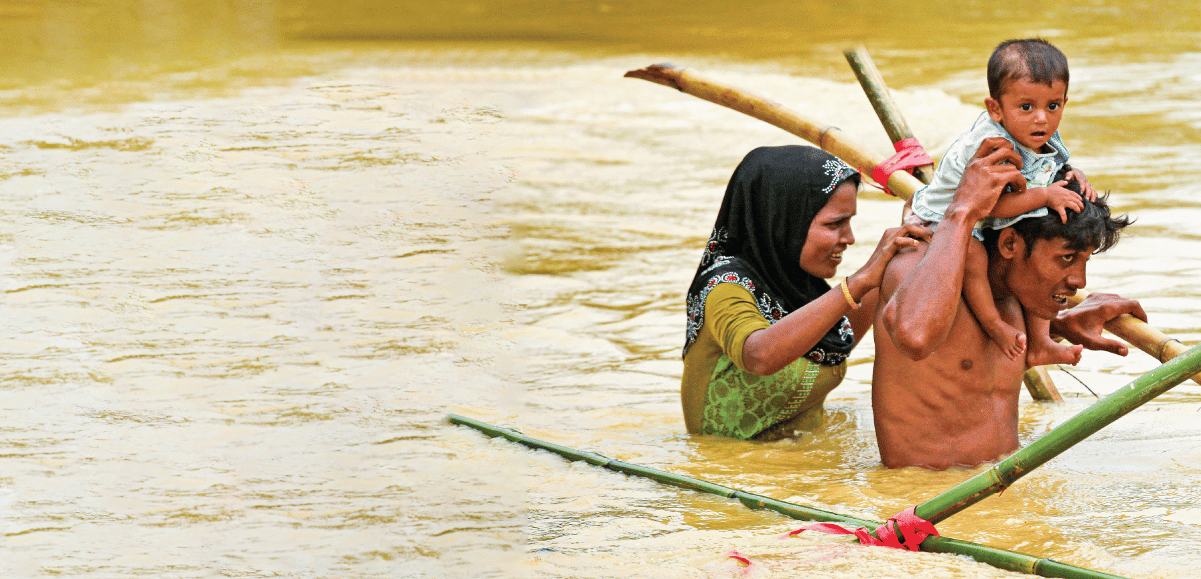South Asia is used to occasional floods during the monsoon season which typically runs from June to September. But this year the weather has been extreme, especially in Northern Bangladesh and Northeastern India, where flooding has washed away dozens of villages while displacing millions of people.
In fact, the flooding has been so severe that about 94% of Sunamganj and over 84% of Sylhet in northeast Bangladesh are reported to be underwater. And since mid-May, more than 70 people have died in Bangladesh from flood-related causes, including drowning and landslides. Furthermore, more than 4,000 people have been infected with waterborne diseases. And crops that millions of people rely upon for sustenance have been destroyed
To make matters worse, getting emergency aid to survivors has been extremely difficult as many towns have been cut off from major roads, railways and air services.
“This life-saving relief has been made possible through the generous support of our donors. But the rain continues to fall, and there is much more to be done to help the victims recover from this terrible flooding,” said Nabil Ali, Director of Programs at IDRF.
In response, IDRF has been providing immediate emergency response kits (which include food, water and hygiene kits) to hundreds of families and individuals whose lives have been devasted by the floods. Through IDRF’s rapid response, many in need have, and will continue to be, given assistance to alleviate the food and health insecurity caused by this disaster.
Working with a local partner, IDRF has already provided 850 Family Emergency Packs to devasted communities in Sunamganj. These emergency packs contain foodstuffs such as 25 kgs of rice, 2 kgs of oil, 2 kgs of pulses, 4 kgs of potatoes, 2 kgs of sugar, and 1 kg of salt, as well as health and hygiene supplies such as Orsaline-N for diarrhoeal diseases (20 Packs), water purification tablets (40 Pcs) and soap for washing (2 Pcs). And more aid from IDRF is on the way.

Scientists say that the unprecedented levels of rain and extreme flooding in South Asia is a harsh reminder that climate change is bringing more extreme weather around the world. India and Bangladesh are particularly vulnerable to climate change because they sit near the tropical waters of the Indian Ocean and the Bay of Bengal. In addition, the negative impact of extreme weather is magnified in areas that are heavily populated, where people live in poverty, and there is little infrastructure to support recovery.
People who would like to support IDRF’s ongoing relief efforts in Bangladesh and India, can do so by making a donation online via the foundation’s website (https://idrf.ca/project/bangladesh-and-india-flood-relief/ ).
About IDRF:
IDRF is a Canadian registered charitable organization dedicated to empowering disadvantaged people in Canada and around the world. Founded in 1984, IDRF has an enviable reputation as one of Canada’s best-run charities and has been recognized by third-party organizations such as the Financial Post and MoneySense for its effectiveness, efficiency, and results. Find out more about IDRF’s work in its Annual Report, and follow them on Facebook, Instagram and LinkedIn.
Zeina Osman
IDRF
+1 416-497-0818
zosman@idrf.ca
